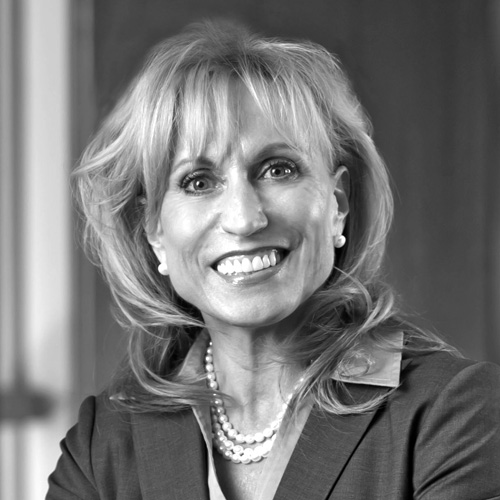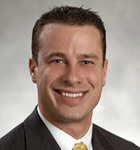Every company has a strategy for success; oftentimes, it’s expressed in its culture and brand. For facilities-management company Vanguard Resources, that strategy is developing its staff and making both employees and customers a top priority. “[Prior to starting the company], I worked in facilities management for in-house owners as well as a large corporation that provided the service, and I recognized the true value of the outsource solution that was providing so much support and tools for people,” explains Ricky Powers, president and CEO of the San Antonio-based company. “[But, I] came to realize the large companies I worked for had forgotten what made them large, which was to ensure they were taking care of their customers and employees first, instead of just focusing on the bottom line.”
What is your management philosophy?

“Communication is vital to keeping our customers and employees informed. ‘Walking the talk’ and leading by example is important; however, if we’re not communicating to our employees, it breeds confusion and results in poor outcomes.”
—Ricky Powers, CEO & President

“Recognizing, understanding, and appreciating diversity in the workplace and conforming yourself to those differences, instead of expecting people to conform to you. Each facility has different generations working under one roof; each culture is unique. Each person learns differently, is motivated differently, and like to be led differently.”
—Emily Dauphin, CFO & VP of Human Resources

“The biggest thing in building a management team is to make every person feel as though they are a critical element of the team and their thoughts matter. People are loyal to Vanguard because they feel like they are part of it—not just an employee.”
—Dustin Power, CIO
Knowing he could do some things better than the companies he worked for, Powers launched Vanguard Resources in 1996. By applying his own values and beliefs, Vanguard has grown from $2 million in revenue to $20 million in just six years by serving clients in Texas, Louisiana, and Oklahoma.
According to the firm’s employees, this success and growth is all thanks to a truly dedicated and personable CEO who takes the time to listen and who gets to know his customers. “Ricky personally sold every contract we have and he is the ‘face of Vanguard,’” says Emily Dauphin, CFO and vice president of human resources. “People sign contracts with us because they like Ricky, they trust Ricky, and they know they are contracting with Ricky.”
T he company is also known for its high level of employee engagement, which many staffers say is due to how the CEO sees all staff members as equals, including himself. “People are happy to work for Vanguard because they know they will be treated fairly and their individual needs will be looked at,” says Dustin Powers, chief information officer. “In this company, it is not uncommon to see the CEO of the company walking around and talking directly to a security guard or maintenance technician to find out what they think of their job or how we as a company could make it better.”
The CEO says he teaches all of his leaders to put themselves on the same level as employees. “We get in there with them and ‘walk the talk’ with them so I think that inspires the people that work for us,” Ricky explains. “It’s not somebody in a suit and tie sitting in an office—they literally get out there, and they will vacuum a floor or grab a tool if they need to. My leaders lead by example and walk in [employees’] shoes. We’re not too good to do it ourselves.”
Vanguard’s strong emphasis on employee development and career building also has a big impact on the company’s high employee-retention rate. “We have what we call ‘Vanguard Lifers,’” Dauphin explains. “These are employees that have been with us for many years and have no intention of working anywhere else.” COO Fraise Granger agrees, stating, “Most have worked every level of our service lines and continue to be promoted up. Everyone is part of the [Vanguard] team and is not just a number to us.”
S till, although the company is seeing immense growth and has devoted, happy employees, it faces challenges just like any other business. “The mentality that our services can be done better or cheaper ‘in-house’ or with a competitor [can make growth difficult],” Dauphin explains. “[Potential clients] tend to think they would be paying too much by outsourcing and they could do it much cheaper in-house, with their own staff. What they don’t realize is they are missing out on all of the added value that Vanguard provides.”
But the company says once customers give Vanguard a chance, they’re sold. “One of my favorite stories Ricky likes to tell is about an account in Oklahoma that called and asked us to clean their Ambulatory Surgery Center (ASC),” Dauphin explains. “They were cleaning it in-house and had never outsourced up until that point. We sent a crew in over the course of one weekend, and that following Monday, the client received several phone calls from the employees at the ASC thanking him for the new equipment. The funny part was they did not receive new equipment—it was just cleaned properly! Needless to say, we got the contract.”
By providing this type of valuable customer service, Vanguard continues to win over new clients with the diverse array of facilities services it offers, such as plant operations and maintenance, clinical engineering, food and nutrition, security, housekeeping, laundry/linen, project management, and PBX/telecommunications. In addition, it manages third-party contracts including utilities management, waste management (regular and infectious), landscaping, valet services, concierge services, and transportation.
As the company evolves, Ricky plans to continue growing the business at a rate of 20 percent per year while keeping his customers and employees first on his list of priorities. “It goes back to the root of why I started this company,” he notes. “The large, [multibillion-dollar] companies have forgotten what it is to focus on customer service, regulatory compliance, quality, and financial stewardship, and I don’t ever want to grow my business to where I forget those things.”

